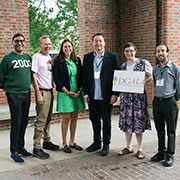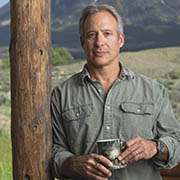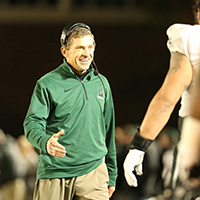Short Talks on Big Ideas: Daniel Rockmore on Machine Learning and Creativity
Aug 21, 2021
3 minute read
3 minute read
In this episode, Professor Rockmore looks at the intricate and sometimes mysterious way machine learning and artificial intelligence interweave with human creativity.
The Birth of BASIC
One of Professor Rockmore’s notable projects was his work with a documentary celebrating the 50th anniversary of the computer language BASIC.
The first version of BASIC was designed by Dartmouth’s John G. Kemeny and his colleague Thomas E. Kurtz and was released at Dartmouth in 1964. These two pioneers wanted to create a computer language that allowed all students to work with computers—not just scientists and mathematicians.
“It’s a wonderful story—a story of collaboration between a leading scientist and a hungry team of undergraduates who, in the words of one of them, didn’t even know what a computer was.”
One of Rockmore’s favorite parts of making the documentary was seeing and hearing footage of Professor Kemeny discuss his vision for the role of computers in our everyday lives in the future.
Focusing on Creativity
Rockmore’s most recent work takes a deep dive into the ways computers can analyze and generate text. How close are we to AI replacing humans as artistic creators?
By looking at enormous amounts of text throughout the ages, Rockmore studied the patterns and conventions of written language. He’s even spent time examining more subjective qualities like style by using computers to analyze vast amounts of text. Rockmore is also interested in using computers to write in particular styles of verse like limericks or sonnets.
“I’m kind of interested to learn if a machine can write a novel. That’s an enduring and fascinating question to me.”
Even though his professional interests center around machine-produced writing, Professor Rockmore hasn’t entirely discarded more traditional literature and written communication forms.






